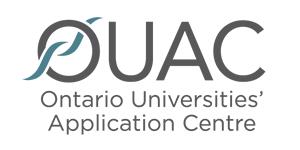INFORMATION GUIDE
This booklet will provide useful information for Senior School students and parents/guardians regarding post-secondary pre-requisites, applications, deadlines and processes.

OVERVIEW
The Post-Secondary Information Guide is a reference booklet designed to broadly outline pathway planning considerations and the opportunities that are available to Grade 11 and 12 Senior School students.
The focus of Grade 11 is post-secondary research and planning for Grade 12 and beyond. In addition to attending information sessions, panel presentations and attending HSC Dialogues evenings, students will meet with their guidance counsellors to discuss the programs and corresponding institutions that fit their interests, aptitude and aspirations. Every student’s needs are unique. The post-secondary planning and process requires students to be thoughtful and informed.
GRADE 9 TO 12 GUIDANCE SUPPORT

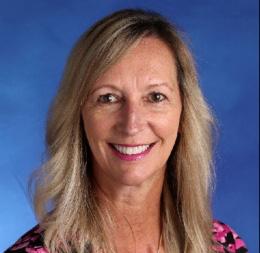
Linda Kemp Director, Student Success Centre House: Birch Earn
905-389-1367 x 180
linda.kemp@hsc.on.ca
Grade 12 represents the culmination of every students’ academic and co-curricular efforts. In reading this guide students will note that the first few months of the graduating year are busy with opportunities, information and timelines. It is an exciting time. It is also a critical time. Students will be provided with an abundance of information and will be asked to make their initial choices for Ontario programs and schools by December. Students who are completing applications for U.K. schools may have an application deadline as early as October or November for those students who are applying to the U.S. Students are reminded to connect with their guidance counsellors regularly. Drop in to see someone from the Student Success Team to ask them questions—they are here to help.
Carol Mulvey Student Success Officer
905-389-1367 x 173
carol.mulvey@hsc.on.ca
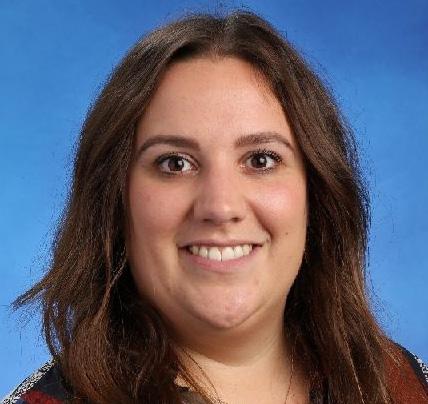
Barbara Pernar Guidance Counsellor House: Cedar More 905-389-1367 x 216
barbara.pernar@hsc.on.ca

Colleen Petch Guidance Counsellor House: Maple Tay 905-389-1367 x 240
colleen.petch@hsc.on.ca
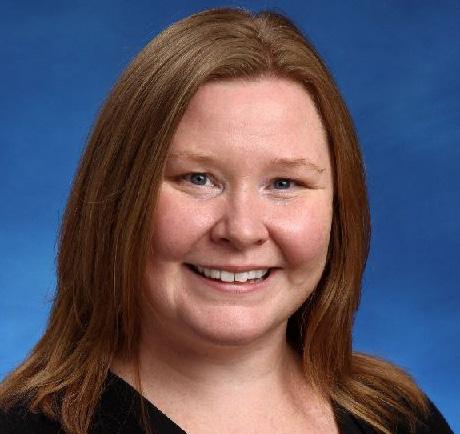
Yvonne Testa Guidance Counsellor House: Pine Yre 905-389-1367 x 266
yvonne.testa@hsc.on.ca
WHERE THE 2024 GRADS ARE
2019 – 2024 GRADS
Our recent graduates from 2019 – 2024 have gone on to study at top institutions in North America and the world.
AREAS OF STUDY
30%
27%
22%
14%
CANADA
Acadia University
Bishop’s University
Brock University *
Carleton University *
Concordia University
Dalhousie University *
George Brown College *
Huron University College *
Laurentian University
McGill University *
McMaster University *
Mohawk College *
Mount Allison University
Ontario College of Art and Design
Queen’s University *
Toronto Metropolitan University *
Sheridan College *
St. Francis Xavier University
Thompson Rivers University
Trent University
University of British Columbia
University of Calgary *
University of Guelph *
University of King’s College
University of Ontario Institute of Technology *
University of Ottawa *
University of Toronto *
University of Victoria *
University of Waterloo *
Western University *
Wilfrid Laurier University *
York University *
7%
UK & INT’L UNITED STATES
Boston University
Carnegie Mellon University *
Cornell University *
Emory University
Franklin and Marshall College *
Georgia Tech University
Johns Hopkins University
Hofstra University
Laguana College of Art and Design
Life University *
New York University
Northwestern University
Ohio State University
Pacific University
Parsons School of Design
Penn State University
Purdue University *
Rhode Island School of Art and Design *
Savannah College of Art & Design
School of the Art Institude of Chicago *
Syracuse University
The New School *
Tufts University *
Tulane University
University of Michigan
University of California *
University of Colorado - Boulder
University of Detroit Mercy
University of Illinois Urbana-Champaign *
University of Maryland
University of Miami
University of Michigan
University of Oregon
University of Pennsylvania
University of North Carolina
University of North Dakota
University of Southern California
Univeristy of Washington *
Wake Forest University
Washington University *
*university destinations for the Class of 2024 100% of HSC graduates recieve a post-secondary offer 95% + of HSC graduates are Ontario scholars
Bader College - Queen’s University
Bond University
Durham University *
King’s College London
Imperial College London
Nagoya University
Newcastle University
Northumbria University
Queen Mary University of London
Queen’s University Belfast
Royal College of Surgeons in Ireland *
Sciences Po University
University College London *
University of Birmingham
University of Edinburgh *
University of Cambridge *
University College London *
University College Dublin *
University of Exeter *
University of Glasgow
University of Leeds
University of Leicester
University of Manchester
University of Nottingham
University of Southampton
University of St. Andrews
University of Stirling
University of York
Warwick University
HOW DO I PREPARE FOR POST-SECONDARY?
START WITH THE PROGRAM
“What do you want to do for the rest of your life?” This question can be daunting for a student that may not know how to answer at this point in their academic career. Choosing a post-secondary program that fits a student’s needs can be difficult, but the members of HSC’s Student Success Team recommend students start with exploring areas of study that pique their interest, or allows them to pursue a subject they have enjoyed in high school or are interested in learning more about.
It is important to focus on the area of study before beginning to select a post-secondary. Not all postsecondary schools offer all areas of study, and program styles can vary significantly across institutions. Ontario Universities Info, an electronic guide to Ontario universities (ontariouniversitiesinfo.ca) has hundreds of programs segmented by category, sub-category and finally a university program. The website is a good place to start your research for programs in Ontario. For information on schools outside of Ontario, we suggest going directly to the school’s website.
Students also have access to Naviance which is a postsecondary research and career exploration platform. Students will be using Naviance to track their postsecondary applications.
Ontario Universities Info lists all universities in Ontario, their programs, cut-off marks and prerequisite courses. It is critical that each student carefully review the information. For Universities outside of Ontario, across Canada, U.S. and the U.K. each student will need to go to the website of each school or check other resources for information. For Grade 10 or Grade 11 students, the SSC recommends working backwards. Look at the programs, review the admission requirements, check out the necessary courses and make sure all prerequisites have been fulfilled. Each Grade 10 and 11 student should ensure they are taking all the necessary Grade 12 courses to get into the program they want.
Take advantage of opportunities to visit postsecondary campuses. Campus tours give a first-hand look at what the post-secondary is like. Attend postsecondary sessions/fairs that are being held at HSC.
Read the post-secondary websites and brochures. The SSC can help find information for the universities each student is considering. Students should also read independent information sources. For example, Maclean’s magazine ranks and reviews all Canadian universities each year. The Fiske Guide to Colleges is a useful U.S. resource that is updated annually
KEEP YOUR FAMILIES INVOLVED
It is important students keep their families involved in the decision-making process. Family members are a good source of information—ask why they chose the field of study and post-secondary they did and what the application process was like for them. Conversations with family can help students understand the factors involved in their own choice of program and post-secondary and help determine which options will provide the best fit
POST-SECONDARY VISITS AT HSC
Representatives from post-secondary schools in
Canada, the U.S. and the U.K. will visit HSC virtually or in-person during the school year. These visits are an opportunity for students to learn more about what different post-secondaries offer. It is important to attend these sessions, alumni panels and postsecondary events to ask questions. Here are some questions that students typically ask:
J How big is the post-secondary?
J Is it in a rural or urban setting?
J What types of programs is this post-secondary known for?
J What are the admission requirements for specific programs?
J What makes it different from other postsecondaries?
J What scholarships are available?
J Is residence guaranteed with admission?
J How much does it cost?
J Can I defer my admission?
J Does it have exchange programs with other post-secondaries?
J Are there full-time professors teaching the programs?
J What courses am I expected to take in my first and second year?
J What is the average class size?
J Are there research opportunities?
J Is there a co-op/internship opportunity?
J What is the food like on campus?
J What are the residences like on campus?
J What extra-curricular opportunities are there? Clubs and sports?
QUESTIONS TO ASK AT AN OPEN HOUSE OR SCHOOL TOUR
• What activities and services are available to help students get settled during the first year?
• Are you able to register for the classes you want?
• How accessible are faculty members to first year students?
• Is there a mentoring program available for first year students?
• What services (such as transportation and shopping) are available locally?
• What is there to do on weekends? Do most students stay or leave campus on weekends?
• What kinds of rooms are available to first year students? Can you pick your own roommate?
IMPORTANT RESEARCH TIPS
• Focus on area of study
• Visit ontariouniversitiesinfo.ca to learn more about Ontario Universities
• For schools outside of Ontario, visit websites directly
• Gather important information such as cut-off marks, prerequisite courses and any relevant admissions information
• Tour campuses of interest, read brochures and websites
• Keep your families involved
• Attend post-secondary visits at HSC
• Attend post-secondary planning sessions and events at HSC
APPLYING TO ONTARIO UNIVERSITIES
Students seeking admission to Ontario universities must use an online application service developed by the Ontario Universities’ Application Centre (OUAC).
Entrance to all Ontario universities is based upon a student’s six highest Grade 12 marks, including English and any required courses. Universities will refer to Grade 11 final marks and completed Grade 12 U/M marks until Grade 12 U/M midterm marks from the Grade 12 year are available. Specialized programs, such as business, life sciences or engineering will require prerequisite courses, which are part of the calculated admissions average.
HSC will forward all completed Grade 11 and Grade 12 marks to the Ontario Universities’ Application Centre (OUAC) in mid-October. Grade 12 course marks will be uploaded in February and April. Final marks are sent at the end of June.
SUPPLEMENTAL REQUIREMENTS AND PERSONAL ESSAYS
Some programs and/or universities require the applicant to submit extra information to be considered for admission. This is an opportunity for students to provide information about themselves and why they are a good candidate for the program they are applying to.
Additional information
Some students choose to take additional courses outside of HSC. Students need to inform the Student Success Centre about any credit courses taken outside of HSC. The student is responsible to ensure the midterm marks of the outside course are posted on their OUAC student account. The provider of the course will upload the midterm mark on the OUAC.
These include summer school courses as well as evening and distance-learning courses taken during the regular school year. It is critical that students inform the HSC Student Success Centre about any credit courses taken outside of HSC as soon as they are officially enrolled in the course. Upon completion of an outside credit course, the student must ensure that the results are sent to HSC, where the information is entered onto the student’s transcript. Students must also be sure to add the educational provider’s information to their OUAC account. The provider of the course will need
to upload your midterm mark on the OUAC site.
HOW THE ONLINE APPLICATION PROCESS WORKS
Students can apply to as many universities and programs as they feel necessary or that are of interest to them. Students must submit applications to their chosen universities in early December—the exact date will be confirmed.
HSC is registered to use the online application and, as a condition of registration, provides demographic and academic data to OUAC. Confidential information will be provided to all HSC students so that they can complete the online application.
Students will have a specific period of time within which to apply online. At HSC, we want to ensure that all applications are completed in a timely manner, and for that reason, our internal deadline is earlier than that
might include evaluation forms, reference forms or autobiographical letters. In some instances, a student may be required to attend an interview, audition, submit a portfolio or a video recording of the answer to a timed question.
If a program has additional admission criteria, it will be stated
in the “requirements” tab on the OUAC application portal. It is recommended that students prepare for the additional requirements by checking the school’s websites for exemplars, speaking to a guidance counsellor and checking with subject teachers who may have further insight, including a Tutorial Leader.
for OUAC general applicants. Students are encouraged to apply and pay the application fee as early as possible since files are forwarded to the universities as they are processed. This is only the first step as part of the application process.
Once the school receives the OUAC information, students will then receive an email message listing the universities and programs they selected with instructions on how to view and/or update their application online.
ADDITIONAL CRITERIA
AUTOBIOGRAPHIES
EVAUATIONS
INTERVIEWS
VIDEOS
AUDITIONS
LETTERS
REFERENCES
PORTFOLIOS
CONDITIONAL OFFERS
Universities will make conditional offers of acceptance. This may also include offers of residence and scholarships. We recommend that students share the information regarding their conditional offer with their guidance counsellor. Each post-secondary has developed its own policy on this issue. It is in a student’s best interests to continue working diligently to the end of the school year to maintain the conditions of their offer. Changes to marks, from those forwarded to OUAC in February, could change the status of acceptance into the program. Each university has developed its own policy on this issue. Please check with the Guidance and Post-Secondary Counselling Department for clarification.













CHECKING EMAIL
It is imperative that students regularly check the email associated with their post-secondary account in order to get updated and relevant information from schools they have applied to. Schools will communicate with students directly, not with their guidance counsellor. Many of the emails will have time sensitive information requiring an action or a response. Students should also check their SPAM folders for any diverted messages, as well as school-specific portals. Students are required to respond to emails from their guidance counsellor and keep them informed.
APPLYING TO ONTARIO COLLEGES
Students seeking admission to Ontario colleges must use an online application service developed for Ontario colleges called the Application Service for Ontario Public Colleges (OCAS).
Website: ontariocolleges.ca
Entrance to Ontario colleges will be based on a student’s best six senior level marks, including English. Colleges will have varying prerequisites for different programs. Students should note that college programs are delivered in several different ways. There are Certificate, Diploma and Degree programs at most colleges. Certificate programs are typically one year, Diploma programs are two years and Degree programs are four years in length.
HSC will forward all completed
Grade 11 and completed Grade 12 marks to the OCAS in midOctober. Grade 12 course marks will be uploaded in February and April. Final marks are sent at the end of June.
Some students choose to take additional courses outside of HSC. These include summer school courses as well as evening and distance-learning courses taken during the regular school year.
It is critical that students inform the Student Success Centre about any courses taken outside of HSC once registered. Upon completion of an outside credit course, students must ensure that their final marks are sent to the Student Success Centre, where the information is entered onto their transcript.
HOW THE ONLINE APPLICATION PROCESS WORKS
Students can apply to as many as five program choices with no more than three at any one college. All program choices must start within the same academic year (i.e., August to July).
Students are encouraged to apply and pay the application fee as early as possible since files are forwarded to the colleges as they are processed. This is only the first step as part of the application process. Students must submit applications for your highly selective college programs by February 1, termed the “Equal Consideration Date.” Colleges will begin to send offers after February 1. May 1 is the deadline to confirm offers of admission.
HSC is registered to use the online application and provides demographic and academic data to OCAS as a condition of registration. Confidential information will be provided to all HSC students so that they can complete the online application.







Once the school receives the OCAS information, students will then receive an email message listing the colleges and programs they selected with instructions on how to view and/ or update their application online.
APPLYING TO OUT-OF-PROVINCE UNIVERSITIES
Each out-of-province post-secondary has its own application process. The majority of these schools require students to apply online directly through their websites. On the application, they may request your OUAC reference number for grade reporting.
Application forms are comprehensive. The postsecondary wants to know about a student’s cocurricular activities, interests and awards. In some cases, a student may also be expected to write a personal essay.
Some universities will require that we send a full high school transcript to them—they may see that the student’s marks are increasing or being maintained.
Suppose a student is planning on applying to out-ofprovince schools, email a guidance counsellor or the Student Success Officer early in the fall to send the necessary transcripts and documentation. Please do
not leave it to the last minute. The earlier the schools
have the right information, the sooner students will hear from a particular school. Some schools have rolling admission, which means that they process applications as they receive them. Often students may hear about an offer within a few weeks of applying.
The application deadline date varies with each postsecondary. Check the website for the schools for the most up-to-date information. Deadline dates are generally at the end of January or February, but as with Ontario schools, we suggest completing the process sooner rather than later. Again, check the school’s website for specific dates. Please note that each student is responsible for applying out-ofprovince to request any required documentation that needs to be sent to universities or colleges outside of Ontario.
If possible, it is worthwhile to visit the out-of-province universities.


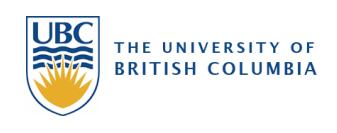









APPLYING TO U.S. UNIVERSITIES
There are over 2,500 accredited four-year colleges in the U.S. Each college or university has its own personality.
Among the first questions that students should ask themselves are, “Why do I want to go to the United States for post-secondary education? What can a U.S. college or university offer me that a Canadian one cannot?” Students should discuss these important questions with their parents/ guardians while seeking input from the guidance department.
We recommend limiting the number of U.S. schools a student applies to no more than six. In most circumstances, U.S. applications can be submitted online using The Common Application (commonapp.org), in congruence with Naviance, which allows a student to use a single application to apply to over 600 U.S. university and college institutions.
GENERAL GUIDE FOR U.S. UNIVERSITY SELECTION
The following is a general guide for selecting U.S. universities: choices should be organized from most ideal (even if these seem out of reach) to most attainable. Students should aim to apply to at least two schools they feel confident that they will be competitive based on requirements and current offers of admissions statistics. Some of the criteria to consider when deciding on U.S. schools:
J program
J admission requirements J application process
selectivity
Make sure to get to know the school intimately. Admission committees or interviewers will be looking to see how much students know about their school. If time permits, students should visit their schools of choice and introduce themselves to the University Admissions Officers. For some schools, to formally complete the application, this is a ‘must do.’
U.S. applications require early initiation due to their complexity. Highly competitive schools will receive over 45,000 applications for a very limited number of spaces! This is not something that can be done at the last minute. If students are applying for early decisions or early action they may have to meet a deadline as early as October.
The process of applying to a U.S. school needs to be thoughtful and requires consistent effort. Students will be working closely with their guidance counsellor. Students will be writing and rewriting their material. Teachers, guidance counsellors will need lead time from students to prepare the required letters of recommendation needed for the application.
ADMISSION CRITERIA FOR U.S. UNIVERSITIES
Academic Record
A complete transcript of a student’s high school grades must be submitted. The strength of the academic program in high school (rigour, breadth, load) and a student’s marks are probably the most important criterion. Some U.S. schools require students to take two to three years of the same foreign language, plus two years of lab science (biology, chemistry, physics), two arts credits and two credits in history or a social science. As every school is different, it is imperative students do their research ahead of time when completing their course selection for the following year. They will look to see that students are taking an increasingly challenging program that might include Advanced Placement (AP) courses. Adherence to the HSC Code of Conduct is also of consideration.
Standardized Tests (SAT, SAT Subject Tests and ACT)
Some schools may require students to submit the results of a standardized test—either the SAT or the ACT. The SAT is a standardized test in reading, writing and language, and mathematics. The ACT has sections on English, mathematics, reading and science. Most students will sit one of these tests at least twice. Typically, the first sitting will be in December or March of the Grade 11 year and then again in September or October of the Grade 12 year. SAT Subject Tests (if required) should also be done in October, November or December of Grade 12. Not all schools require SAT Subject Tests.
Please note, due to the COVID-19 pandemic, many schools have made a move to “test optional” or “test blind.” Please consult with your guidance counsellor about school-specific policies for testing.
Letters of Recommendations
Generally, three letters of recommendation are required for a U.S. application. The guidance counsellor letter is intended to be an overall assessment of the candidate and will review the student’s academic record, co-curricular interests and accomplishments, citizenship, personal qualities and areas of particular strengths. Academic references are required from one or two teachers. These should be from teachers of core subjects who know the student well. Please request these letters from faculty, in consultation with a guidance counsellor, by the end of the Grade 11 year.
Co-Curricular Activities
Most schools, especially the selective ones, want to create a well-rounded class of highenergy students who have both the capacity and the inclination to handle the academic workload and, at the same time, contribute to the campus community. All schools are interested in out-ofclass activities. They want to see the student has committed significant amounts of sustained time to special interests, skills or talents. They are also interested in seeing if a student has assumed a leadership role in these activities.
Writing Requirements
Most schools will ask a student to write one or more personal essays. This is an opportunity to give the University Admissions Officer a personal look at each student—how they write, think and what kind of ideas they have. Therefore, it is essential that to spend time preparing this part of the application. They are skilled





in helping share a student’s best self while maintaining their allimportant personal voice.
NCAA
Athletes who wish to play for an NCAA institution at the Division 1 or 2 level must ensure they are cleared through the NCAA Eligibility Center (eligibilitycenter.org). Students complete the application form in their Grade 11 year and request that we send transcripts from HSC on their behalf. NCAA is a complicated procedure with very strict rules. Student althletes should begin work with their guidance counsellor early.











APPLYING TO U.K. UNIVERSITIES
The process of applying to a U.K. school needs to begin during the Grade 11 year. Admission to U.K. universities depends typically on results obtained in Grade 12, a personal statement and a letter of recommendation. The personal statement is an important aspect of the admission process, and it is imperative the student has a genuine interest in the chosen subject. A supplemental form and/ or additional testing and possibly an interview may be required for some university programs. Students will need to check the individual school requirements to ensure that they complete the necessary testing that may be required.
Most applications to U.K. schools will be done through the Universities and Colleges Admissions Service (UCAS). Applications to Irish schools will typically be done directly to the school on their website or through Atlantic Bridge. Some schools, depending on the program, require standardized tests that need to be completed at the end of the Grade 11 year or the beginning of the Grade 12 year.
Due to the distance from home, it is vital students do thorough research about the program options. Using websites and visiting with University Admissions Officers who come to HSC, students can get a better feel for the unique features of each school. It is important for students to visit the U.K. and Irish schools if they are at the top of the list.
As deadlines for Oxford, Cambridge, medicine, dentistry and veterinary medicine can be as early as October, students must complete the work required in the summer before Grade 12. For many programs at Oxford and Cambridge, students are required to write subject-specific tests found on the school’s websites. All Cambridge applicants will need to complete the COPA (Cambridge Online Preliminary Application) due shortly after the October 15 deadline.














APPLYING TO IRELAND
Students who would like to apply to universities in Ireland apply through Atlantic Bridge. The student completes a form to request an application through Atlantic Bridge first. Admissions to Irish universities is based on the transcript, the personal statement and teacher reference letters. An interview may be required for some university programs
SCHOLARSHIPS
At HSC, we encourage students to take full advantage of the numerous scholarship opportunities available. Many colleges in Canada have automatic, merit-based scholarships which are based upon the entrance average for a student applying to a particular school. There is no additional work for the student to do, except to maintain a strong academic standing throughout the entire year. Outside organizations will have meritbased scholarships as well as broader and more competitive scholarships. Many of these applications will be completed online by the student and will involve a school transcript, some form of essay and a letter of recommendation from one or two teachers/ guidance counsellors.
Another type of scholarship is where the student will be sponsored by HSC. This means that if applying for a sponsored scholarship, you will be selected by HSC. In the case of sponsored scholarships, the adjacent guidelines apply to ensure that candidates will be treated in the fairest manner possible. All information is posted on the Grade Class page. Students are reminded to check it regularly for updates and news about scholarships and deadlines.
APPLYNOW
• All applicants will be evaluated by a Scholarship Committee with input, as needed, from guidance counsellors, other teachers and administrators.
• Students who apply for early decision to U.S. schools will not be eligible to be sponsored in the fall term for awards in Canada, as they have indicated that their primary interest lies in a non-Canadian school. These students are free to apply for non-sponsored awards. If such students are denied or deferred in December by the U.S. school they have applied to, they can be sponsored for Canadian scholarships in the winter term.
• Each student may apply to be sponsored for only one national award (such as the Schulich Scholarship) and one universityspecific award (such as the Queen’s Chancellor’s Scholarship). Students should do some research to determine their priorities as well as which scholarship is right for them.
• Applications received after the HSC internal deadlines will not be considered.
• For a student to be sponsored, HSC must have every confidence in the candidate’s integrity and good character.
• It is the student’s responsibility to research and find scholarships for which they are eligible
SENIOR SCHOOL
ACTIVITIES CHECKLIST
GRADE 11
• Maintain best grades possible as they will be submitted to postsecondary schools.
• Complete student profile on Naviance.
• Attend post-secondary dialogues evenings in the Fall.
• Continue to investigate post-secondary program options.
• Attend HSC post-secondary presentations and panels.
• Attend post-secondary webinar events.
• Attend course selection information sessions.
• Meet with guidance counsellor 1:1.
• Attend transition to post-secondary events.
• Prepare and/or write standardized tests (ACT, SAT, BMAT, etc.) as necessary.
• Complete Ministry expectations for Community Service Hours.
GRADE 12
• Attend grad meetings.
• Read SSC Grad page announcements and topic pages.
• Investigate potential scholarships.
• Attend post-secondary dialogues evenings in the Fall.
• Visit the post-secondaries’ Open Houses. Information found on Post-secondary websites and e-info.
• Attend OUAC and OCAS information workshops.
• Complete Ontario, Canadian, U.S. and U.K. applications by the due date.
• Complete all supplementary applications required for each post-secondary school by the due date.
• Be aware of the conditions of an offer and share information with guidance counsellor.
• Continue to update their Colleges I am Applying To list on Naviance
• Maintain grades and ensure that they comply with the conditions of an offer.
• Accept offer by due date.
• Be aware of residence application deadlines.
DEFINITIONS
ACT (American College Testing Program)
This test measures skills in English, mathematics, reading and science with an optional writing component. It is an alternative to the SAT.
AP (Advanced Placement)
At HSC, we offer formalized AP courses in Calculus, English, Biology, Physics, Chemistry, Macro and Microeconomics. These tests are scored on a scale of one to five, five being the highest. Many selective U.S. colleges and some Canadian universities may give credit for high AP scores.
Common Application commonapp.org
Common App is a single undergraduate college admission application that a student may use to apply to over 600 member U.S. colleges and universities.
Conditional Acceptance
All post-secondary offers are conditional. The conditions of the offer will be outlined in an email or letter from the institution. The conditions may define an overall final average and may include specific individual marks.
Early Action
An admission program offered by many U.S. schools that allows you to apply by an earlier deadline, and to hear from the college as early as December or January. The program is not binding, so if you are admitted, you can decline the offer.
Early Decision
An admission program offered by many U.S. schools that allows you to apply by an earlier deadline and to hear from the college as early as December or January. The program is binding, so if you are admitted, you are obliged to attend that college.
ontariocolleges.ca
Ontario College Application Service website which provides information regarding Ontario colleges, programs, scholarships, prerequisites, residence and financial aid and the application process.
Ontario Universities Info ontariouniversitiesinfo.ca
A website distributed by OUAC that outlines programs offered by the universities, cut-off marks and prerequisite courses.
OUAC (Ontario Universities’ Application Centre)
Located in Guelph, OUAC processes all Ontario and several out of province applications. All your marks and university selections are sent to this centre, which then forwards them to the individual universities.
Prerequisite – A course that is required before entering into a particular program.
SAT (Scholastic Assessment Test)
SAT I, formerly known as the Scholastic Aptitude Test. The test is designed by the College Board to evaluate students in the verbal, writing and math areas. The three sections of the test are scored on a scale of 200 to 800, with 800 being the highest possible score on each section.
Transcript
Your personal, official academic record. It records the courses, marks and credits that a student has earned, in compliance with the Ontario Ministry of Education’s guidelines for full disclosure.
UCAS
ucas.com
UCAS processes undergraduate applications for virtually all universities and colleges in the U.K.
HSC POSTSECONDARY PREP GUIDE
HILLFIELD STRATHALLAN COLLEGE
299 Fennell Avenue West Hamilton, ON L9C 1G3
905-389-1367
www.hsc.on.ca
ssc@hsc.on.ca
Our core mission is to develop joyful and engaged students who live life with purpose.
The best learning happens when students are happy to come to school, have opportunities to follow their passions, and participate in deep learning experiences that challenge them.
Joyful, engaged students develop strong relationships with their peers and with the caring adults who spark and support their learning both inside the classroom and beyond.
Their journey at HSC prepares students to live with purpose—to understand their world, inspire, lead, act, and make a difference in their own unique ways.

